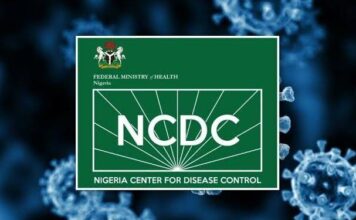Amidst growing concerns about the potential spread of cholera across Nigeria, the Nigeria Centre for Disease Control and Prevention (NCDC) has cautioned citizens against using contaminated water sources.
Dr. Jide Idris, the NCDC’s Director-General, emphasized the importance of this precaution in an interview with the News Agency of Nigeria, highlighting that cholera – a deadly disease caused by poor sanitation and limited access to clean water – has been detected even in seemingly clean areas with poor hygiene practices.
In response to recent outbreaks in several states, the NCDC is urging state authorities and citizens to take prompt action to prevent further spread of the disease.
“The contamination typically happens due to inadequate sanitation and poor infrastructure, which allow sewage to infiltrate drinking water systems,” he elaborated.
Idris advised states to ensure proper treatment of water before consumption, noting, “Boiling water and using water purification tablets can significantly reduce the risk of infection.”
He guaranteed that the centre will maintain vigilant surveillance of the situation and is working in partnership with state governments to execute strategies aimed at containing the outbreak and preventing further transmission of the disease.
Idris added, “Public awareness campaigns are also underway to educate people on the importance of safe water practices and hygiene.
“Cholera is a highly infectious disease that can cause severe dehydration and even death if not treated promptly.
“Symptoms include diarrhoea, vomiting and muscle cramps. Early detection and treatment are crucial in managing the disease and preventing fatalities.”
Dr. Idris warned that the approaching rainy season necessitates enhanced vigilance and proactive measures to protect public health.
He emphasized the crucial role of community involvement in ensuring clean water supply and proper waste management to prevent the spread of cholera.
According to him, between January 1 and June 11, there were 1,141 suspected and 65 confirmed cholera cases, resulting in 30 fatalities, across 96 Local Government Areas in 30 States, with 10 states (Bayelsa, Zamfara, Abia, Cross River, Bauchi, Delta, Katsina, Imo, Nasarawa, and Lagos) accounting for 90% of the country’s cholera burden.
However, he assured that the National Cholera Technical Working Group, led by NCDC and partners, is providing support to the affected states to combat the outbreak.
The NCDC is providing a range of support measures, including risk communication, active case search, laboratory diagnosis, case management, and response, to combat cholera outbreaks.
Over the past two years, 18 African countries have been affected by cholera outbreaks, resulting in a significant toll of over 6,000 deaths and nearly 350,000 cases in southern and eastern Africa since late 2021.
The NCDC highlights that cholera can occur when sewage contaminates drinking water, posing severe health risks. Prevention strategies include ensuring access to safe water, sanitation, hygiene, and oral cholera vaccines.
In 2017, a global initiative was launched to reduce cholera deaths by 90% by 2030, aiming to combat this public health threat.
